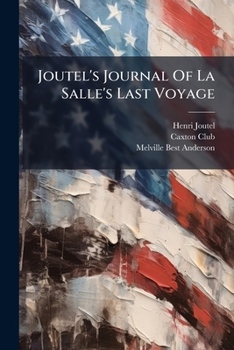Joutel's Journal Of La Salle's Last Voyage
"Joutel's Journal of La Salle's Last Voyage" offers a firsthand account of the ill-fated expedition led by Ren -Robert Cavelier, Sieur de La Salle, to establish a French colony at the mouth of the Mississippi River. Henri Joutel, a trusted lieutenant, meticulously recorded the events of the voyage, providing invaluable insights into the challenges, hardships, and ultimate failure of the mission. This journal details the exploration of the Gulf Coast, the establishment of Fort Saint Louis in present-day Texas, and the growing tensions and conflicts that plagued the expedition.
Joutel's narrative is a crucial historical document, shedding light on the ambitions and struggles of French exploration in North America during the late 17th century. His observations on the native populations, the landscape, and the internal dynamics of the expedition offer a unique and compelling perspective on this pivotal moment in American history. This edition brings renewed attention to a classic account of early American exploration.
This work has been selected by scholars as being culturally important, and is part of the knowledge base of civilization as we know it. This work was reproduced from the original artifact, and remains as true to the original work as possible. Therefore, you will see the original copyright references, library stamps (as most of these works have been housed in our most important libraries around the world), and other notations in the work.
This work is in the public domain in the United States of America, and possibly other nations. Within the United States, you may freely copy and distribute this work, as no entity (individual or corporate) has a copyright on the body of the work.
As a reproduction of a historical artifact, this work may contain missing or blurred pages, poor pictures, errant marks, etc. Scholars believe, and we concur, that this work is important enough to be preserved, reproduced, and made generally available to the public. We appreciate your support of the preservation process, and thank you for being an important part of keeping this knowledge alive and relevant.





